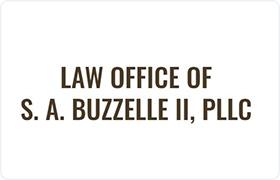Tempe Reorganization Lawyer, Arizona
Sponsored Law Firm
-
 x
x

Click For More Info:
-
Law Office of S.A. Buzzelle II, PLLC
14050 N 83rd Avenue Suite 290 Peoria, AZ 85381» view mapBankruptcy & Debt Law Your Trusted Bankruptcy Attorney
If you are in need of legal services for matters relating to bankruptcy and divorce, rely on Law Office of S. A. Buzzelle II, PLLC in Peoria, AZ.
800-873-4991
Ronald J. Ellett
Reorganization, Credit & Debt, Bankruptcy, Bankruptcy & Debt, Collection
Status: In Good Standing
FREE CONSULTATION
CONTACTCasey Scott Blais
Litigation, Insurance, Reorganization, Personal Injury
Status: In Good Standing Licensed: 16 Years
FREE CONSULTATION
CONTACT Stanley A. Buzzelle II Peoria, AZ
Stanley A. Buzzelle II Peoria, AZ Practice AreasExpertise
Practice AreasExpertise
